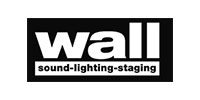
02 Feb Top 5 Questions to Ask When Selling Your Business
Selling your business is a major decision! You have devoted your time, money, and energy into building, running, and operating your business. Here are the Top 5 most frequently asked questions of owners who are seeking a business exit.
Why is seller financing so important to the sale of my business?
Surveys have shown that a seller who asks for all cash, receives on average only 70 percent of his or her asking price, while sellers who accept terms receive on average 86 percent of their asking price. That’s a difference of 16 percent. In many cases, businesses on the market for all cash just don’t sell. With reasonable terms, however, the chances of selling increase dramatically and the time period from market to sale greatly decreases. Most sellers are unaware of how much interest they can receive by financing the sale of their business. In some cases it can greatly increase the amount received. And, it informs the buyer that the seller has enough confidence that the business will indeed, pay for itself.
What happens when there is a buyer for my business?
When a buyer is sufficiently interested in your business, they will submit an offer in writing. This offer or proposal may have one or more contingencies. Typically, the contingencies concern a detailed review of financial records and may also include a review of lease arrangements, the franchise agreement (if there is one), or other pertinent details of the business. You may accept the terms of the offer or you may make a counter-proposal. Should you choose not to accept the buyer’s proposal, the buyer can withdraw it at any time. At first review, you may not be pleased with a particular offer; however, it is important to look at it carefully. It may be lacking in some areas, but it might also have some pluses to seriously consider. There is an old adage that says, “The first offer is generally the best one the seller will receive.” Once you and the buyer are in agreement, you should work to satisfy and remove the contingencies in the offer. It is important that you cooperate fully in this process. The buyer may, at this point, bring in outside advisors to help them review the information. When all the conditions have been met, final papers will be drawn and signed. Once the closing has been completed, money will be distributed and the new owner will take possession of the business.
What can I do to help sell my business?
A buyer will want up-to-date financial information. If you use accountants, you can work with them on making current information available. If you are using an attorney, make sure they are familiar with the business closing process and the laws of your particular state. You might also ask if their schedule will allow them to participate in the closing on very short notice. Time is of the essence in any business sale transaction, so ensure that the attorney can make the time to prepare the documents or attend the closing. The failure to close on schedule permits the buyer to reconsider or make changes in the original proposal.
What can/can’t an advisory firm do?
M&A advisors are professionals who will facilitate the successful sale/transition of your business. It is important that you understand what a professional M&A advisory firm can and cannot do. They can help you decide how to price your business and how to structure the sale so it makes sense for everyone — you and the buyer. They can find the right buyer for your business, work with you and the buyer in negotiating and along every other step of the way until the transaction is successfully closed. They can also help the buyer in all the details of the business buying process. An M&A advisory firm is NOT a magician who can sell an overpriced business. Most businesses are saleable if priced and structured properly. You should understand that only the marketplace can determine what a business will sell for. The amount of the down payment you are willing to accept, along with the terms of the seller financing, can greatly influence not only the ultimate selling price, but also the success of the sale itself.
How long can I expect it to take to sell my business?
On average, it takes between five to eight months to sell most businesses. Some businesses will take longer to sell, while others will sell in a shorter period of time. The sooner you have all the information needed to begin the marketing process, the shorter the time period should be. It is also important that the business be priced properly from the outset. Some sellers, operating under the premise that they can always come down in price, overprice their business. This theory often backfires because buyers often will refuse to look at an overpriced business. It has been shown that the amount of the down payment may be the key ingredient to a quick sale. The lower the down payment, generally 40 percent of the asking price or less, the shorter the time to a successful sale. A reasonable down payment also tells a potential buyer that the seller has confidence in the business’s ability to make the payments.

































